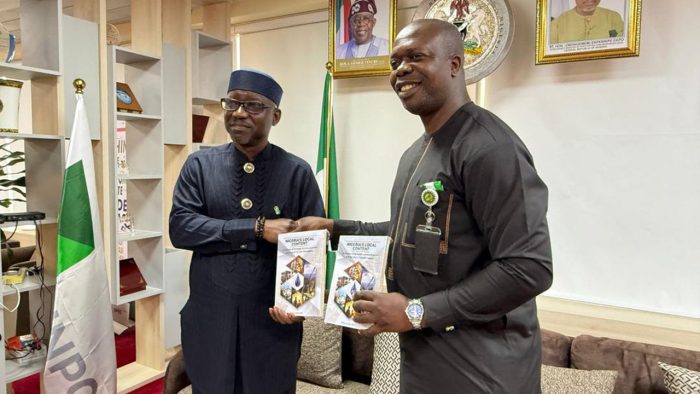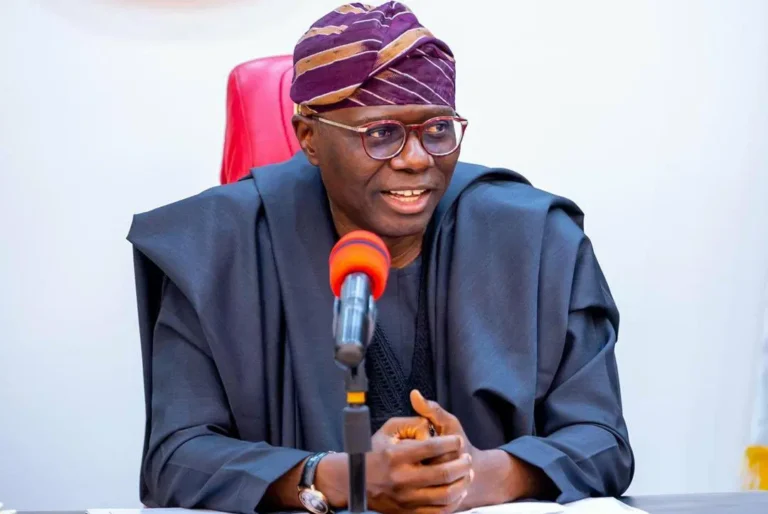
Nigeria’s N7 trillion annual revenue potential inherent in the nation’s blue economy is currently under threat due to Marítime insecurity, LEADERSHIP has learnt.
We reports that Maritime experts have argued that the nation can generate N7 trillion annually through the enormous potential inherent in the blue economy.
However, to harness the ocean resources in the blue economy to the nation’s full potential, Nigeria must address piracy, illegal fishing, interstate disputes, transnational crime such as smuggling of arms and narcotics among other multifaceted threats to maritime security.
Speaking at the 2014 edition of the World Maritime Day, over the weekend in Lagos, titled, ‘Navigating the Future: Safety First,’ held in Lagos, Chairman, Commission on the Limits of the Continental Shelf (CLCS), Prof. Larry Awosika, said Nigeria, as a maritime state with extensive marine territory, must tackle these issues to fully harness its ocean resources.
Prof. Awosika said ensuring safe, secure, energy-efficient and low-carbon maritime transport are essential for the sustainable exploitation of marine resources.
He said unsustainable maritime practices, including security lapses and environmental degradation, pose significant threats to marine-based industries.
According to him, the Blue Economy, which encompasses fishing, resource extraction, marine transportation, ecosystem health and tourism can thrive only through a foundation of maritime security.
He argued further that investment in marine exploration and tourism could be undermined by security threats that would affect both national and global economies.
The Professor noted that the federal government, the ministry of Marine and Blue Economy as well as related agencies to prioritise safety at sea through new investments in infrastructure, science, data, and technology.
Speaking earlier, the minister of Marine and Blue Economy, Adegboyega Oyetola, emphasised the need to address safety and security challenges facing Nigeria’s maritime sector, especially in light of new technologies and alternative fuels aimed at reducing greenhouse gas (GHG) emissions from ships.
He stressed that to ensure both shipping safety and operational efficiency, the government must invest and upgrade facilities and building capacity to keep Nigeria competitive in global seaborne trade.
Oyetola who was represented by the permanent secretary Ministry of Marine and Blue Economy, Oloruntola Olufemi, also noted that Nigeria has consistently aligned its regulatory framework with International Maritime Organisation (IMO) standards and other global maritime regulations, reinforcing its commitment to upholding the highest levels of maritime safety.
“Key among the initiatives of the Ministry are digitalisation and automation of port operations to enhance safety, security, and efficiency as well as performance optimisation to reduce costs and increase reliability, and the adoption of innovative practices to propel our industry towards sustainable development.
“President Bola Tinubu is investing heavily in port modernisation to reduce inefficiencies, lower operational costs, and improve safety in our ports. This process is being financed through Public-Private Partnerships (PPP) arrangements,” he explained.
Oyetola said the government has also made significant progress in creating a conducive environment for port operations by aligning its policies with global best practices.
This, he said, has enhanced safety, security, and efficiency in our ports, leading to notable reductions in the delays associated with processing exports and imports.
He, however, said that the government needs the support of the private sector to be able to provide the resources and state-of- the-art facilities needed to take Nigeria’s maritime industry to higher trajectory.
He said Nigeria has consistently worked to align its regulatory framework with International Maritime Organisation (IMO) standards and other international maritime regulations, reinforcing our commitment to upholding the highest standards of maritime safety.
Also speaking, Nigeria’s Alternate Permanent Representative to the International Maritime Organisation (APR-IMO), London, Bwala Williams, noted that the organisation’s focus on enhancing maritime safety and security is timely, particularly as the world commemorates the 50th anniversary of the International Convention for the Safety of Life at Sea (SOLAS).
Williams recognised the progress made in setting global safety standards, which have been key to saving lives and preventing maritime disasters.
However, Williams warned against complacency, citing the growing threats of pollution, overfishing and climate change.
He called for sustainable practices, improved fisheries management, and the expansion of marine protected areas.
He reaffirmed Nigeria’s commitment to advancing maritime safety, enñvironmental sustainability, and its blue economy through innovative policies and international partnerships as well as Nigeria’s alignment with the United Nations’ Sustainable Development Goal (SDG) 14, which aims to conserve and sustainably use oceans.
The managing director of the National Inland Waterways Authority (NIWA), Bola Oyebamiji, highlighted the urgent need to effectively address challenges such as pollution, climate change impacts, and inadequate infrastructure through innovative solutions and meaningful dialogue with all stakeholders.
Oyebamiji urged government officials, industry leaders, academics, and civil society to work together to promote sustainable practices within Nigeria’s maritime sector and develop policies that protect the nation’s waterways while fostering economic growth.
SOURCE: LEADERSHIP




